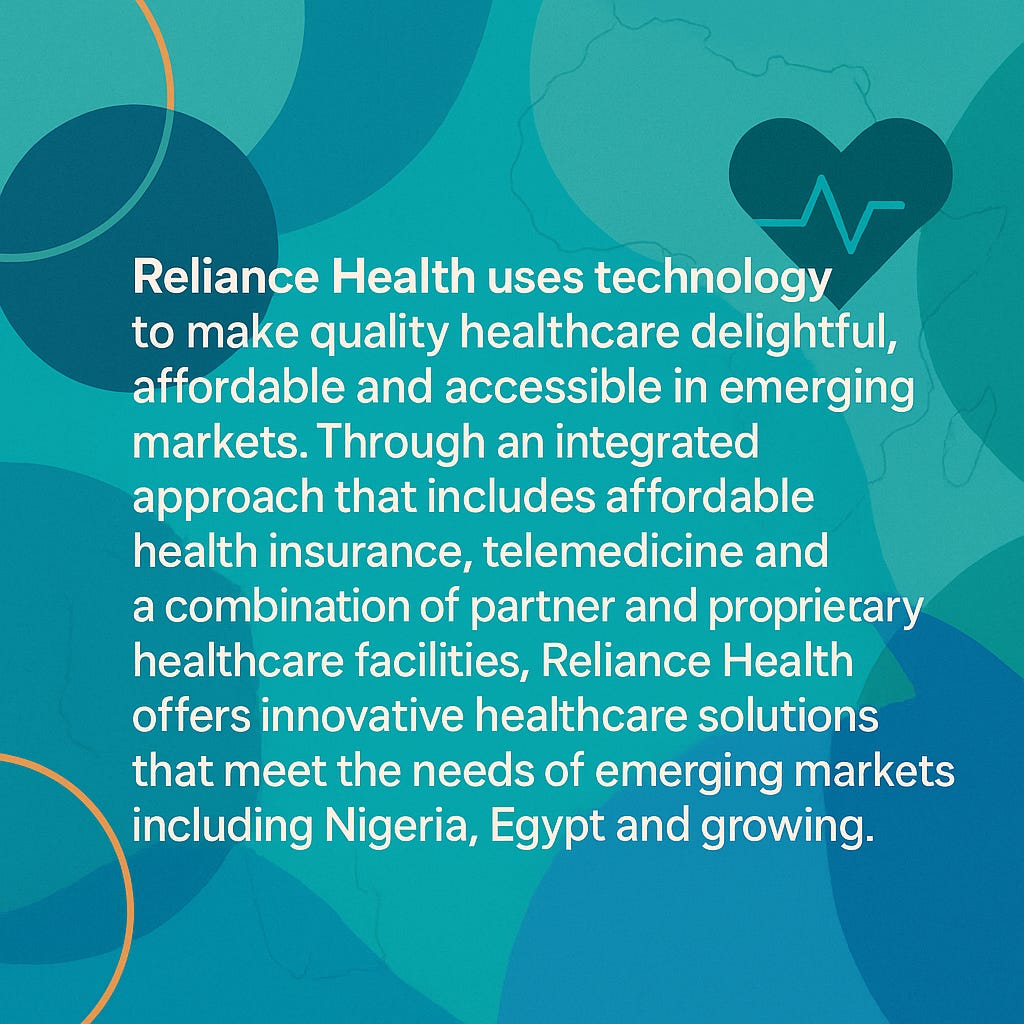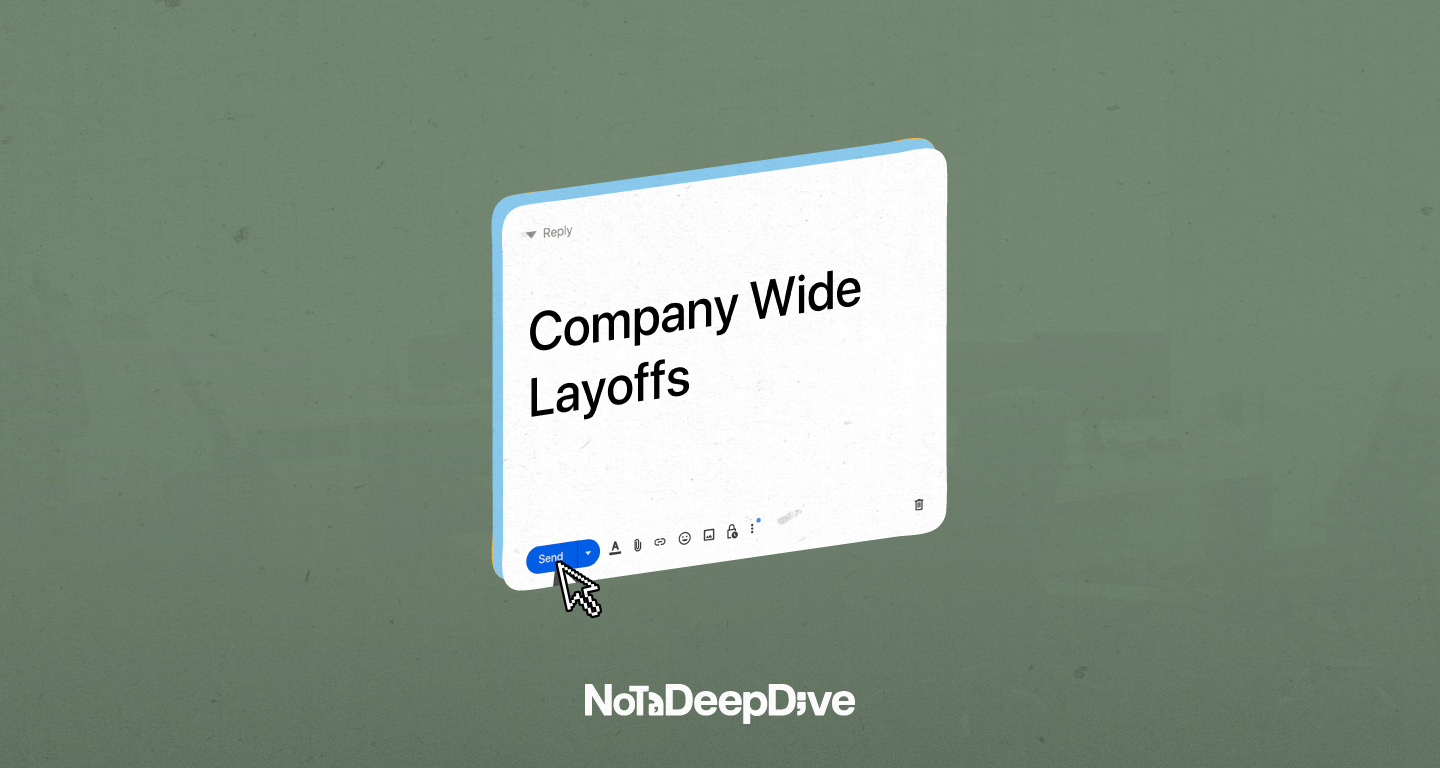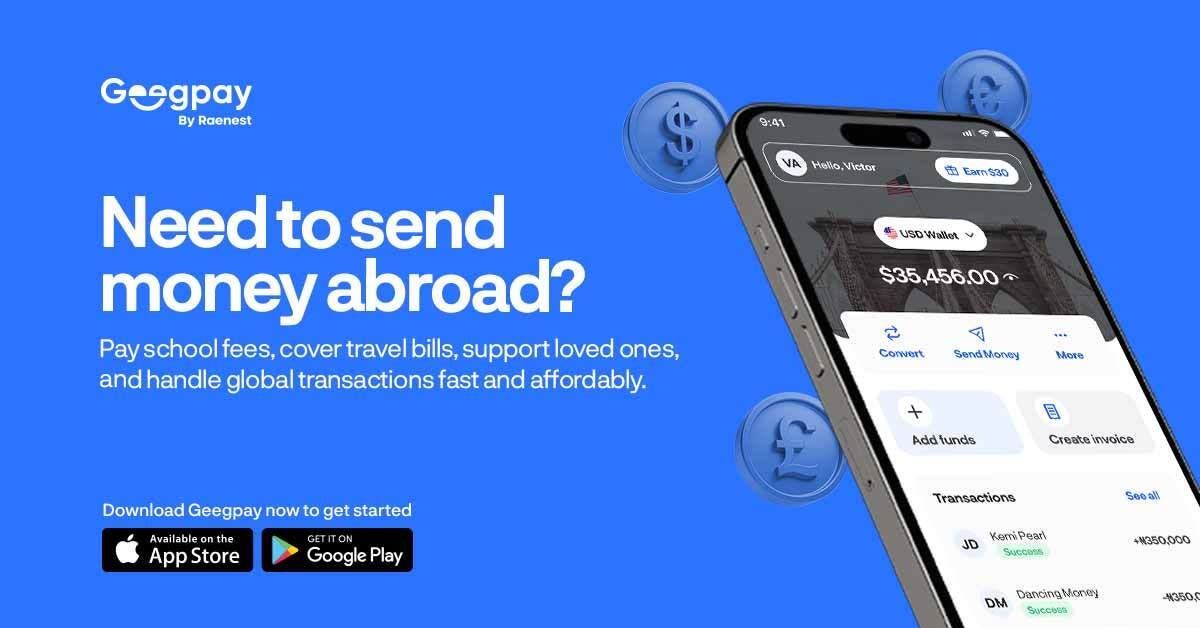YC-backed Reliance Health lays off 100+ people in breakeven push
Did international expansion fail to meaningfully improve revenue?
Notadeepdive is brought to you by Credit Direct and Geegpay by Raenest.
If you missed last week’s newsletters, catch up here and here. If this newsletter was shared with you, subscribe now for free:
TOGETHER WITH CREDIT DIRECT
Credit Direct offers flexible loans, BNPL options, and an app that lets you pay, invest, and stay in control because life doesn't wait, and neither should your money.
Layoffs at Reliance Health show hard limits of international expansion
As Nigeria observed a national holiday to mourn former President Muhammadu Buhari on July 15, a storm was brewing inside Reliance Health. Managers at the Y-Combinator and General Atlantic-funded health tech startup were pulled into a meeting and informed about company-wide layoffs. The managers would deliver the brutal news to affected team members.
To help managers navigate the difficult task, the company’s leadership provided scripts for the process.
“Start the meeting calmly,” read one script seen by Notadeepdive. “I want to let you know that this conversation will be a difficult one, and I ask that you allow me to walk through everything before we discuss next steps or questions you may have.”
Managers sent out meeting invites, punctuating the peace of the public holiday. After a week of tough meetings, 106 people across support, sales, marketing, and operations teams had lost their jobs.
"This decision is part of a company-wide workforce reduction aimed at ensuring the long-term sustainability of the business and supporting our immediate goal of achieving breakeven this quarter,” managers told team members. “Unfortunately, your role has been impacted as part of this process.”
Only the product and technology teams were spared, three people with knowledge of the process told me.
“Literally everyone I know was laid off,” said one ex-employee who asked not to be named so he could speak freely.
Employees were shocked by the layoffs, yet in retrospect, they say the signs were probably there. The perks that made Reliance Health a great place to work gradually disappeared; no more catered lunches and no chair allowances. The 2024 Christmas party was canceled.
Reliance Health offered one month’s salary and a “notice period pay” to employees who met expectations during their last appraisal, according to internal documents. That payment was contingent on employees completing their duties and handing over tasks on their last day of employment (July 18).
Employees who did not meet expectations were not offered severance payments.
For years, the company’s leadership had talked about the need to reach breakeven; that week in July, it took a drastic step.
The layoffs marked a turning point for Reliance Health, often held up as a model for how African startups could scale across markets. Across conversations with ex-employees, many claimed that sales figures remained unimpressive outside Nigeria, suggesting July’s layoffs were a reckoning with the limits of its international expansion.
One employee claimed the rest of the team is now overworked, with a handful of people across some teams resigning from the business.
Reliance Health did not respond to multiple emails seeking comments for this story.
TOGETHER WITH RAENEST
Transfer money to the UK, Europe, US, China, Nigeria, Kenya, Cameroon, Brazil, India and more. With Geegpay, you get low fees, fast delivery, free conversions and competitive exchange rates.
From Kangpe to full-stack HMO
Reliance Health began life in 2015 as Kangpe, a telemedicine app offering on-demand consultations in Nigeria.
Founded by Dr. Femi Kuti, engineer Matthew Mayaki, and health-tech entrepreneur Opeyemi Olumekun, the team was accepted into global tech accelerator Y Combinator in early 2017.

There, a partner asked a fateful question: would Kangpe’s chat-only model truly solve users’ healthcare needs? Realizing that referrals, diagnostics, and claims processing were missing pieces, the founders pivoted to a fully integrated health maintenance organization.
By mid-2018, Reliance had launched its first employer-sponsored plans, packaging telehealth, a vast partner network of clinics and hospitals, prescription delivery, and its own “Reliance Family Clinics” under one flat monthly premium.
That pivot paid off with rapid corporate traction. In January 2020, after tripling revenues year-over-year, Reliance secured a $6 million Series A led by Partech and backed by Y Combinator, Ventures Platform, and Picus Capital.
Two years later, General Atlantic led a landmark $40 million Series B, the largest African healthtech round to date, alongside Tencent, Partech, and other global investors, bringing total funding to $48 million.
Investors praised Reliance’s 99 percent contract renewal rate with employers and its ability to serve both large corporates and micro-businesses. By early 2022, the company claimed over 1,200 corporate clients and more than 150,000 enrolled members, cementing its reputation as Nigeria’s fastest-growing digital HMO.
A costly push beyond Nigeria
Flush with cash, Reliance set its sights beyond Lagos. Late in 2022, it opened an office in Cairo under Reliance Health Egypt, hiring local teams and contracting Egyptian hospitals.
In 2024, it added Senegal and yet another undisclosed African country, each time signing leases, hiring country managers, and building provider networks from scratch. Yet insiders say the Egyptian businesses reported softer-than-expected sales figures but did not provide specifics.
Nigeria remained the leading revenue engine despite likely representing a low-margin, highest-volume market. With multiple currencies and differing regulatory regimes, the strategic expansion was likely expensive in the near term.
Reliance’s model depends on a delicate balance of premiums, utilization, and provider costs. In Nigeria, premium pricing must accommodate volatile Naira fluctuations and double-digit inflation.
Each renewal cycle offers a chance to reprice, but that happens only once a year; meanwhile, hospital fees and drug costs can surge, sending claims well past budget. On the corporate side, plan contracts are sticky but cannot be repriced easily; on the retail front, there are marketing and onboarding costs to consider. Individual policyholders are difficult to win back once they miss payments.
New markets multiply these pressures. While employee perks, onboarding allowances for clinics, and regulatory licensing fees all due immediately, revenues trickle in over monthly premiums, often paid in local currencies that slide against the dollar.
While the company must bear any payment delays from corporate clients, partner hospitals will demand quicker settlements to cover their cost inflation. This dynamic can make cash burn incredibly high.
The July layoff appears to be a course correction. By reducing its workforce and likely pausing further hires, Reliance is looking to achieve greater cost control.
International ambition in healthcare is notoriously capital-intensive, and without tight underwriting, rigorous utilization management, and disciplined expansion pacing, losses can stack up faster than investor enthusiasm can refill the coffers.
Reliance Health’s story, from scrappy telehealth startup to multi-country HMO, illustrates the promise and brutal costs of building integrated care in emerging markets.
Its journey to date has won plaudits and deep-pocketed backers, but the latest cuts underscore the hard limits of growth without profitability. As Reliance recalibrates, the question remains whether its Nigeria-first earnings path can sustain future ambitions, or if the cost of scale will continue to collide with reality.
Before you run off: The best way to support Notadeepdive? Like this post. Share it on social media, your work group chat and with that smart friend who still hasn’t subscribed.
It’s how the newsletter travels; every share helps keep this sharp, independent and free.
Also: I’m looking for a video editor who’s absolutely obsessed with YouTube. You get the platform, you know what works, and you’ve probably got five channels you watch religiously.
If that sounds like you — and you already read and love Notadeepdive — let’s talk. Email me: olumuyiwa@notadeepdive.com
See you on Sunday!






On reliance; is this why their app has been buggy?! Because it logged me out and I haven’t been able to sign in again